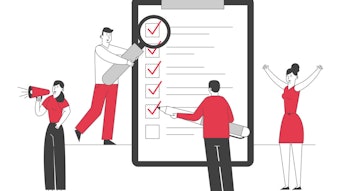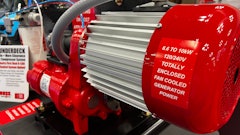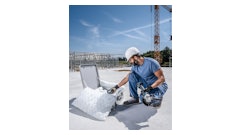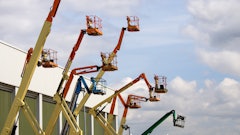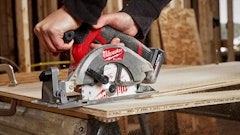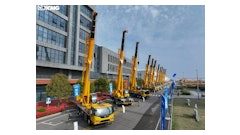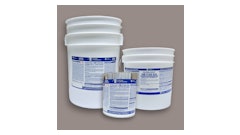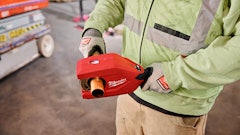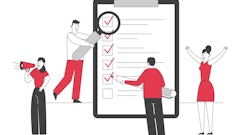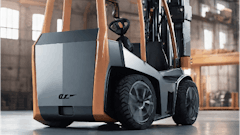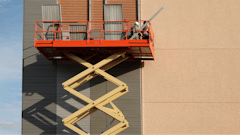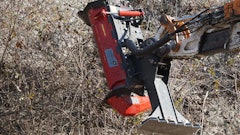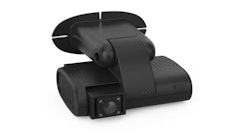When you think about it, the service department is the heart of your rental business. It is there that new life is breathed into old equipment, where broken items are repaired and made new again, where all pieces of equipment find common ground. Just like a heart, your shop never stops working. There is always something coming in, and something going out.
As important as your service department is, have you ever given much thought to how it could be made better? More productive? Safer? Just what do you need to make your shop run like a top?
Perhaps nothing is more frustrating for a service manager than not having the tools needed to do the job at hand. One of the first tools any service department needs is qualified personnel, who are drawn to service departments with modern tools to work with.
Electrical testing
The types of equipment needed for your service department will depend on what types of repairs you will be performing. For instance, if you are going to repair electrical equipment, a hi-pot tester and an armature growler are must-haves. They will allow you to ensure the electrical items you are renting are safe and performing as they should.
As a product is returned from rental, it must receive a careful visual examination. "On electrical products, the key inspection areas should be the strain relief, as its failure is the single most likely item to result in an electrocution,"says Marc Sotcher with Sotcher Measurement Inc.
The power cord and plug must be checked with care and the tool itself should be checked for visual defects, missing guards and safety signs. "All electrical tools should then be given an electrical test to verify their safety and performance," Sotcher says. "Following that series of inspections and tests, a product service tag should be filled out, noting the inspections performed and their results. This service tag is important as it provides some liability protection should an accident occur during the next rental."
Sotcher says rental businesses should also have a method for testing the performance of their portable generators. "Generators are a great rental item often used in emergency situations, yet are seldom tested," he says, noting that Sotcher offers a range of generator testers. "When their output is checked, most generators fall far short of their rated output."
To protect expensive power tools, such as large electric breakers, install hi-lo voltage detectors on each one, Sotcher says. "These devices replace the tool's power cord, preventing its use if the voltage is outside of the manufacturer's recommended values," Sotcher says. "This prevents armatures from burning out when the tool is used on too long an extension cord or overloaded portable generator."
Oil management
Good oil management is key to keeping a clean, well-organized shop. "We see many times that a shop may have bulk tanks and pumps from their oil distributor but do not have a good system for getting used oil from the equipment to the proper used oil storage site," says Aaron Sage of Sage Oil Vac. Equipment such as "Sage Oil Vac models 30080 and 30070V allows shops to vacuum 30 or 60 gallons of used oil directly from the engine crankcase or from the drain pan. These user-friendly carts are mobile and conveniently wheel the used oil over to the off load point."
He adds, "Having the ability to vacuum engine oil and other fluids directly from equipment as opposed to draining and transporting is becoming more prevalent. Some equipment manufacturers are installing auxiliary drains and drain hoses that allow the shop to directly connect to the engine crankcase."
Need a lift?
One piece of equipment that every repair shop needs is quality lifting equipment. Whether it's floor jacks, jack stands or a two-post, in-ground lift, your technicians need a safe, quick way to get under the equipment they will be servicing. Injuries from improperly lifted equipment are not uncommon, and every step you take to avoid an accident is a wise investment.
"A key item that can not only make a mechanic more productive but also save him some pains of getting on his hands and knees to fix a piece of equipment is the use of lift tables," notes Justin Mehringer, marketing coordinator at Stens Corp. "Lift tables can bring the machines to eye level so the mechanic doesn't have to get on the ground or bend over to work on the equipment, saving time and energy, which makes him more efficient."
One of the most important tasks your service department performs on a daily basis is lubrication. The best tool for ensuring proper lubrication is an air-powered grease gun. These tools, powered by your shop's air, inject grease into fittings under a large amount of pressure, making a difficult job a lot easier - and ensuring the lubrication of critical parts.
These guns are not inexpensive, but there are oil and grease distributors who will provide one for no charge, provided you buy your grease from them. If that's not an option, expect to pay over $1,000 for a good quality system.
Safety first
The types of safety equipment needed might vary from shop to shop, but there are a few constants. Each employee in your repair division should have a pair of safety glasses, hearing protection, good quality work gloves and, for additional protection, face shields and guards should be used with grinders and sanders.
A word about safety glasses - most employees only wear them when grinding or hammering. The fact is, there are several solvents, cleaners and other chemicals in use in the repair shop every day that can injure the eyes. Safety glasses should be used when checking for hydraulic or other fluid leaks, when working around batteries, using parts cleaners or working under any piece of equipment.
Equipment that is being repaired should be tagged, but in addition, any sort of equipment that has a safety problem should be labeled and locked out. Accidents will happen, despite your best efforts to avoid them. As a result, you should have a comprehensive first aid kit on hand, as well as employees properly trained in first aid.
It goes without saying that customers should not be allowed in the shop area unless they're accompanied by an employee. Allowing customers to wander through your shop is opening yourself to liability if anything should happen. Posting signs is one way to prevent this problem. If possible, your service department should be separated from your rental and retail counter.
Service departments can be a bit difficult to set up, but after all, they are the mortar that holds a rental business together. By taking steps to make yours safer and more efficient, you'll be able to provide service with a smile.

